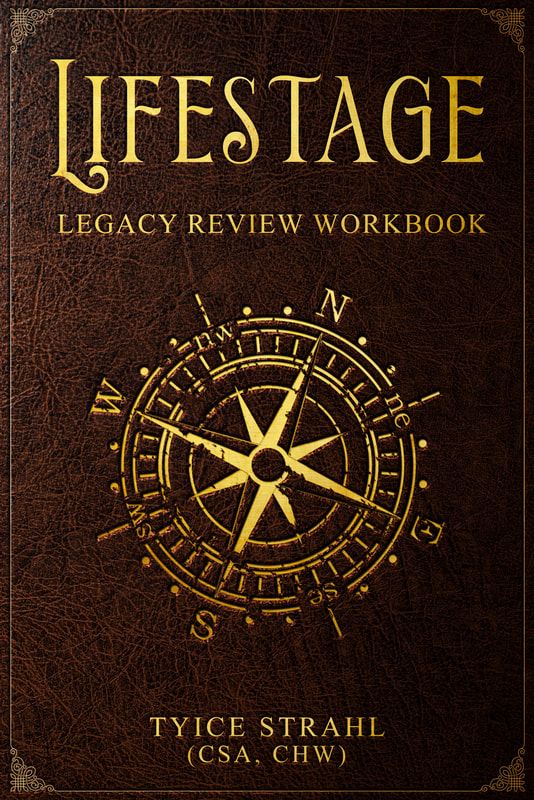|
It can be overwhelming to be asked to make decisions for someone who is passing away or who is no longer able to express their wishes. It's even more difficult if they haven’t documented their wishes or discussed them with you in advance.
When it comes time to make these decisions for another there are two general standards of consideration, the Substituted Judgement Standard and the Best Interest Standard. Substituted judgment means you do the best you can to determine what the person would have done themselves if they were able to make the decision. Best Interest means you decide what is in the overall best interest of the person. If you are making decisions for someone at end of life it may be helpful to think about the following questions:
Advance directive Advance directives are legal documents that allow you to spell out your decisions about end-of-life care ahead of time. They give you a way to tell your wishes to family, friends, and health care professionals and to avoid confusion later on. Living will A living will is a written, legal document that spells out medical treatments you would and would not want to be used to keep you alive, as well as your preferences for other medical decisions, such as pain management or organ donation. POLST Form POLST forms (Physician Orders for Life-Sustaining Treatment) provide guidance about your medical care preferences in the form of a doctor’s order. Typically, you create a POLST when you are near the end of life or critically ill and know the specific decisions that might need to be made on your behalf. These forms serve as a medical order in addition to your advance directive. They make it possible for you to provide guidance that healthcare professionals can act on immediately in an emergency. DNR A DNR (do not resuscitate) order tells medical staff in a hospital or nursing facility that you do not want them to try to return your heart to a normal rhythm if it stops or is beating unsustainably using CPR or other life-support measures. Even though a living will might say CPR is not wanted, it is helpful to have a DNR order as part of your medical file if you go to a hospital. Without a DNR order, medical staff will make every effort to restore your breathing and the normal rhythm of your heart. Power of Attorney A power of attorney is a document you can use to appoint someone to make decisions on your behalf. The appointment can be effective immediately or can become effective only if you are unable to make decisions on your own. General Power Of Attorney A general power of attorney lets you give someone else the authority to act on your behalf, but this power will end if you are unable to make your own decisions. Durable Power Of Attorney A Durable power of attorney allows you to name someone to act on your behalf for any legal task, but it stays in place if you become unable to make your own decisions. Power of Attorney for Health Care A durable power of attorney for health care is a legal document naming a healthcare proxy, someone to make medical decisions for you at times when you are unable to do so. Your proxy, also known as a representative, surrogate, or agent, should be familiar with your values and wishes so he or she will be able to decide as you would when treatment decisions need to be made. Choosing a Medical Agent Think about who you trust to tell the doctors about what is most important to you and what you would want if you become too sick to tell them yourself. You want to choose someone who will follow your medical wishes, make sure your wishes are known to medical providers and is able to make decisions in situations that may be extremely stressful. What to Discuss with Your Medical Agent
This guide prepared by Lifestage can help you organize everything in one place so you and your loved ones can have peace of mind knowing there is a plan based on your needs and wishes. Apply code AssistedSpokane at checkout to download a digital copy for free. Comments are closed.
|
AuthorTyice Strahl Categories
All
Archives
May 2023
|
- Home
-
Settings
- Assisted Living
- Home Care
- Independent Living
- Memory Care
- Skilled Nursing
- Adult Family Homes
-
All Communities
>
- Aspen Quality Care
- Avamere South Hill
- Brighton Court
- Brookdale Nine Mile
- Brookdale Park Place
- Cheney Assisted Living
- Cherrywood Assisted Living
- Colonial Court
- Cornerstone Court
- Evergreen Fountains
- Palouse Country
- Fairview Assisted Living
- Fairwinds
- Fairwood
- Fieldstone Memory Care
- Good Samaritan
- Maplewood Gardens
- Moran Vista
- North Point Village
- Orchard Crest
- Pine Ridge Memory Care
- Emilie Court
- Ridgeview Place
- Riverview Retirement
- Rockwood Retirement Community
- Rose Pointe Assisted Living
- Royal Park
- South Hill Village
- Sullivan Park Assisted Living
- Sunshine Health Facilities
- Touchmark Assisted Living
- Willow Grove
- Wind River
- Alderwood Manor
- Franklin Hills
- Manor Care
- North Central Care Center
- Providence St Joseph
- Regency at Northpointe
- Royal Park Health and Rehabilitation
- Spokane Veterans Home
- The Gardens on University
- Spokane Assisted Living Directory
- Locations
- Services
- About
- Senior Living Blog
- Contact


 RSS Feed
RSS Feed
